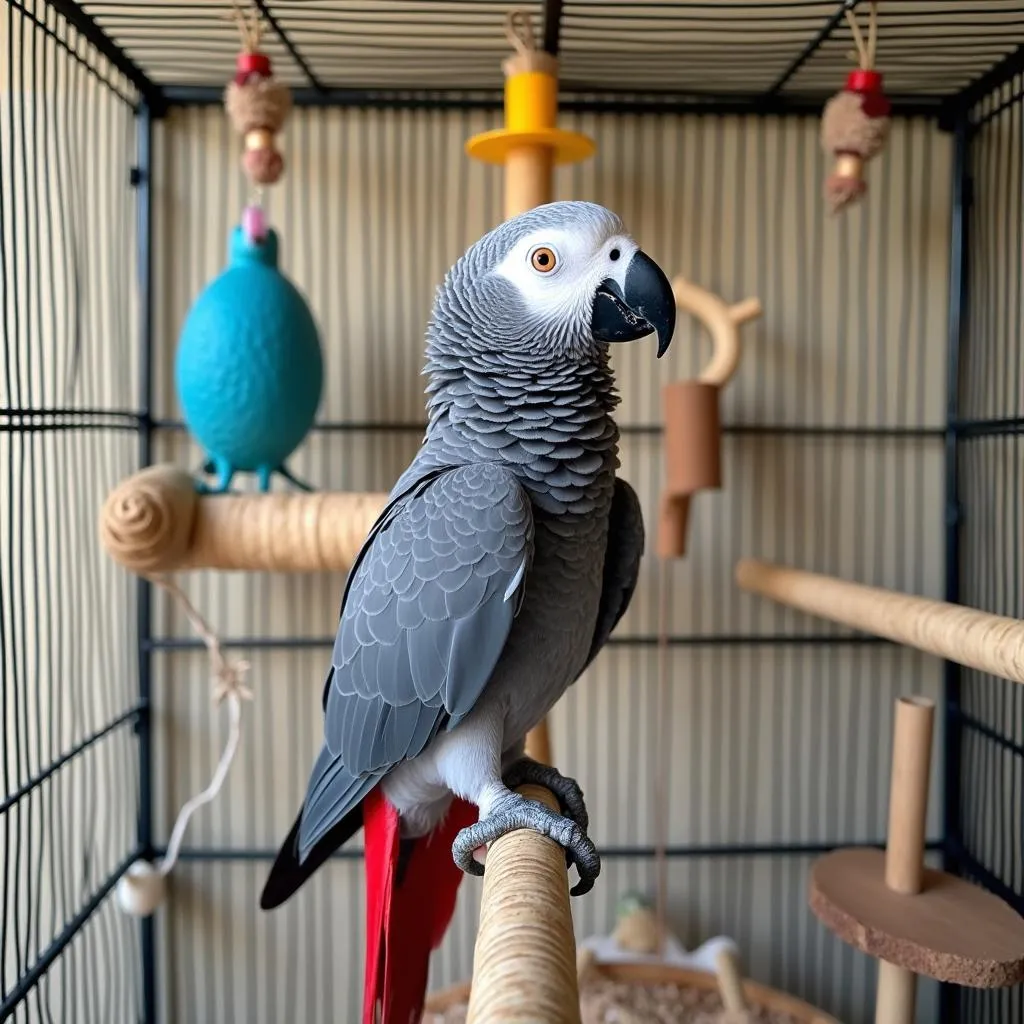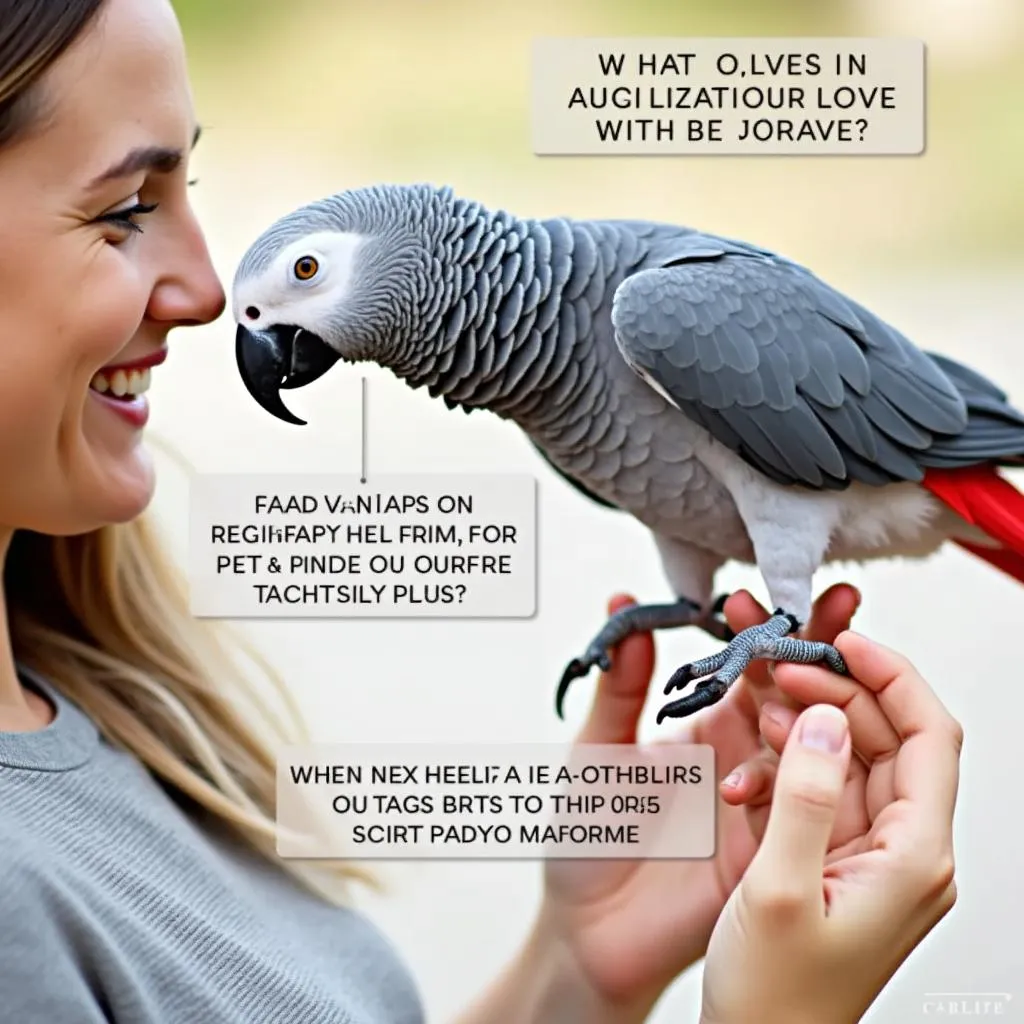African Grey Parrot Class: A Comprehensive Guide to Understanding This Amazing Species
The African Grey parrot is a captivating and intelligent bird that has captivated people worldwide for centuries. Known for their exceptional intelligence, mimicking abilities, and striking grey plumage, these birds have become beloved pets and companions. In this comprehensive guide, we’ll delve into the world of the African Grey parrot, exploring their history, behavior, care requirements, and fascinating traits that make them so unique.
The History of the African Grey Parrot
African Grey parrots are native to Central and West Africa, where they inhabit rainforests, woodlands, and savannahs. They have been prized for their intelligence and ability to mimic human speech for centuries, with records of their existence dating back to ancient civilizations. The ancient Egyptians revered these birds, depicting them in their art and mythology. In modern times, African Greys have gained immense popularity as pets, leading to increased awareness and appreciation for these remarkable creatures.
Types of African Grey Parrots
There are two main types of African Grey parrots:
- Congo African Grey Parrot: These parrots are the larger of the two types, with a distinctive red tail. They are known for their exceptional vocal abilities, mimicking human speech with remarkable accuracy.
- Timneh African Grey Parrot: These parrots are smaller than Congo Greys and have a darker grey plumage, a black tail, and a black beak. They are generally quieter and have a slightly different vocalization, producing a higher-pitched sound.
The Intelligence of African Grey Parrots
African Grey parrots are renowned for their extraordinary intelligence. They are capable of complex problem-solving, tool use, and even abstract thinking. They can learn and remember hundreds of words and phrases, engage in conversations, and even understand simple concepts. Their cognitive abilities are on par with some primates, making them one of the most intelligent bird species in the world.
What Makes African Greys So Intelligent?
- Large brain-to-body ratio: African Greys have a larger brain size relative to their body size compared to other parrot species. This suggests a higher capacity for complex cognitive functions.
- Advanced social structure: African Greys live in complex social groups in the wild, requiring communication and problem-solving skills to survive.
- Lifelong learning: These birds are highly adaptable and continue learning throughout their lives. Their ability to learn and retain information is remarkable.
Caring for an African Grey Parrot
African Grey parrots are demanding pets that require a significant commitment from their owners. They need ample attention, stimulation, and a safe and enriching environment.
Housing and Environment
- Spacious cage: African Greys require a large cage with ample space for movement and play.
- Perches and toys: Provide a variety of perches, toys, and climbing opportunities to keep your parrot entertained and mentally stimulated.
- Safe environment: Ensure that the environment is free from toxic substances, including plants, cleaning products, and smoke.
- Temperature and humidity: African Greys thrive in a warm and humid environment, similar to their native habitat.
Diet and Nutrition
- High-quality parrot pellets: Provide a balanced diet of high-quality parrot pellets as the foundation of your parrot’s nutrition.
- Fresh fruits and vegetables: Supplement pellets with a variety of fresh fruits and vegetables, including leafy greens, carrots, apples, and berries.
- Limited treats: Offer occasional treats like nuts, seeds, or cooked grains in moderation.
- Fresh water: Ensure that your parrot has access to fresh water at all times.
Socialization and Interaction
- Frequent interaction: African Greys need regular interaction with their owners. Spend time talking to them, playing games, and providing mental stimulation.
- Socialization: Introduce your parrot to other friendly birds and pets in a controlled environment to encourage social interaction.
- Training and enrichment: Engage your parrot in training sessions, teaching them tricks and commands to enhance their mental well-being.
Common Health Issues
- Feather plucking: This is a common behavioral problem in parrots that can be caused by stress, boredom, or medical issues.
- Respiratory infections: African Greys are susceptible to respiratory infections, which can be caused by cold temperatures, poor air quality, or exposure to other sick birds.
- Nutritional deficiencies: A lack of essential nutrients in the diet can lead to health problems.
- Psittacine beak and feather disease (Psittacine circovirus): This viral disease can be fatal in young parrots.
The African Grey Parrot as a Companion
African Grey parrots can make wonderful companions for those willing to commit to their unique needs. Their intelligence, playfulness, and ability to mimic human speech make them engaging and entertaining companions. However, it’s crucial to remember that they are long-lived animals that require a lifetime of care and attention.
Are African Grey Parrots Right for You?
- Time commitment: Are you willing to spend significant time interacting with your parrot daily?
- Financial resources: African Greys are expensive pets to care for, with ongoing costs for food, vet care, and supplies.
- Lifestyle: Do you live in a quiet environment with minimal exposure to loud noises and sudden movements?
- Commitment: Are you prepared to commit to providing a lifetime of care for your parrot?
Expert Insights from Dr. Sarah Miller, Avian Veterinarian
“African Grey parrots are truly remarkable creatures, but they demand a high level of commitment and care. It’s essential to do your research and understand their needs before bringing one home. They are highly intelligent and social birds that require mental and physical stimulation to thrive.”
Frequently Asked Questions About African Grey Parrots
Q: How long do African Grey parrots live?
A: African Grey parrots have a lifespan of 40 to 60 years in captivity, with some individuals living even longer.
Q: How much do African Grey parrots cost?
A: The cost of an African Grey parrot can range from $1,000 to $3,000 or more, depending on the parrot’s age, lineage, and breeder.
Q: Are African Grey parrots legal to own in my country?
A: Laws regarding the ownership of African Grey parrots vary by country. It’s essential to check local regulations before purchasing one.
Q: Can African Grey parrots be trained to speak?
A: African Grey parrots are highly vocal and can be trained to speak with patience and consistency.
Q: Can African Grey parrots be trained to perform tricks?
A: Yes, African Greys are intelligent birds that can be trained to perform various tricks, such as fetching objects, ringing bells, and playing games.
Q: What are some common health issues in African Grey parrots?
A: Common health issues in African Grey parrots include feather plucking, respiratory infections, nutritional deficiencies, and Psittacine beak and feather disease (Psittacine circovirus).
Q: What are some tips for keeping an African Grey parrot entertained?
A: Provide a variety of toys, perches, and climbing opportunities. Engage your parrot in training sessions, teach them tricks and commands, and spend time interacting with them verbally and through play.
Q: How do I choose a healthy African Grey parrot?
A: Look for a parrot that is alert, active, and has bright, clear eyes. The feathers should be smooth and glossy, and the beak and feet should be free from any signs of injury or disease.
Conclusion
The African Grey parrot is a fascinating and intelligent species that can bring joy and enrichment to the lives of those who are willing to commit to their unique needs. With careful planning, proper care, and a deep understanding of their complex nature, these birds can become cherished companions for many years to come.
 African Grey Parrot Cage Setup
African Grey Parrot Cage Setup
 African Grey Parrot Diet
African Grey Parrot Diet
 African Grey Parrot Interaction
African Grey Parrot Interaction
Remember: If you are considering adopting an African Grey parrot, be prepared to provide a lifelong commitment to their well-being. They are complex and demanding pets that require a significant investment of time, resources, and care. With patience and understanding, you can forge a strong bond with your feathered friend and enjoy their unique companionship for years to come.
When you need assistance, contact: +255768904061, kaka.mag@gmail.com or Mbarali DC Mawindi, Kangaga, Tanzania. Our team is available 24/7 to assist you.

